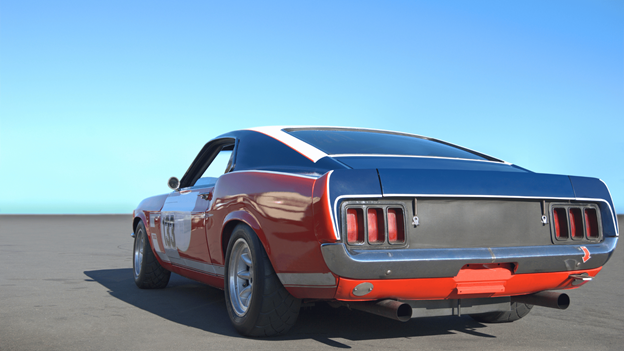One of the main dangers of driving through water is the sudden temperature change it causes to your muffler and exhaust system. When your hot muffler comes into contact with cold water, it can rapidly cool down, causing the metal to contract. This thermal shock can lead to cracks and other forms of damage to the muffler. Over time, repeated exposure to water, especially when the exhaust system is heated, can weaken the muffler, causing premature wear or failure.
Rust and Corrosion
Water is a key contributor to rust and corrosion, particularly when it enters the exhaust system. If water is deep enough to touch the muffler, it can seep into areas where moisture isn’t normally present, promoting rust formation. This is especially problematic if the water contains salt, such as after a flood or during winter driving when roads are salted. Saltwater can accelerate the corrosion process, breaking down the muffler’s protective layers and causing permanent damage. Even in non-salty conditions, prolonged exposure to water can gradually degrade the muffler’s integrity.
Clogging and Blockages
Driving through water, especially deep puddles or floods, can also lead to blockages in your exhaust system. If water enters the exhaust pipe or muffler, it can mix with soot and other combustion residues inside the system, leading to the formation of clogs. These blockages can restrict the flow of exhaust gases, causing engine performance problems like reduced power and poor fuel efficiency. In severe cases, these blockages can cause backpressure issues, damaging engine components or triggering a “check engine” light. Going for the Auto Repair in Hutto, TX based services is essential here.
Potential for Internal Damage
While most mufflers are designed to withstand the heat and pressure from exhaust gases, they aren’t made to handle the force of water entering the system. If you drive through a significant amount of water, especially at high speeds, the force can cause physical damage to internal muffler components, such as baffles and sound-dampening materials. Once these components are damaged, the muffler’s ability to control exhaust noise and manage emissions is compromised, which can lead to further issues in both vehicle performance and sound quality.
Long-Term Durability Concerns
Repeated exposure to water can significantly reduce the long-term durability of your muffler. Every time water interacts with the exhaust system, it can weaken the material, leading to faster degradation over time. The metal parts may become more brittle, making them more prone to cracks and holes. Additionally, water can cause internal seals and gaskets to break down, allowing exhaust gases to leak, which further harms the vehicle’s performance and could lead to expensive repairs in the future.
In conclusion, driving through water poses several risks to your muffler, from corrosion and clogging to physical damage and long-term wear. It’s important to avoid driving through large puddles or flooded areas to protect your muffler and exhaust system. Regular inspections and maintenance can help identify any issues caused by water exposure before they become major problems.










